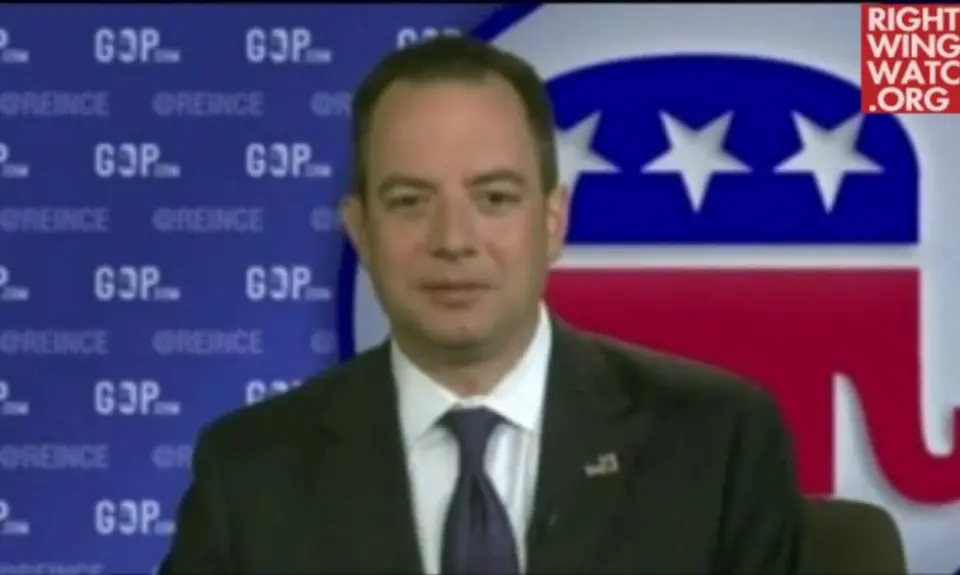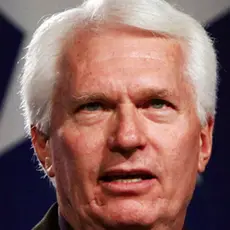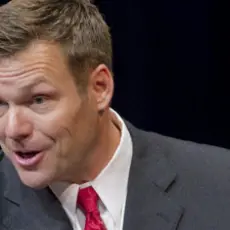On Sunday’s “Meet the Press,” RNC Chairman and Trump Chief of Staff-in-waiting Reince Priebus, when asked about the Trump administration’s possible plans for a registry of Muslims, said that he wasn’t “going to rule out anything” but did say, “We’re not going to have a registry based on a religion.” The latter statement would be more reassuring if it weren’t for one remarkable fact: some of Trump’s top advisers and biggest supporters believe that Islam is not actually a religion.
Trump’s National Security Adviser Michael Flynn said last summer that Islam is a “political ideology” that hides behind the “notion” that it is a religion. “Islam is a political ideology,” he said during a speech to the anti-Muslim group ACT for America, on whose board he sits, during the summer. “It is a political ideology. It definitely hides behind this notion of it being a religion.” He also said Islam is “like a malignant cancer.”
Flynn’s comments sound a lot like televangelist Pat Robertson, who said last year that people should not view Islam as a religion but rather as a “political system masquerading as a religion.” In fact, this idea that Islam is not a religion is widely shared among Trump’s Religious Right backers. Last December, the Family Research Council’s Tony Perkins wrote that banning Muslims from immigrating to the U.S. would not be imposing an unconstitutional religious test because “only 16 percent of Islam is a religion”:
What most people either don’t realize or willfully ignore is that only 16 percent of Islam is a religion—the rest is a combination of military, judicial, economic, and political system. Christianity, by comparison, isn’t a judicial or economic code—but a faith. So to suggest that we would be imposing some sort of religious test on Muslims is inaccurate. Sharia is not a religion in the context of the First Amendment.
Of course, as we have noted before, this is a remarkable argument coming from the same people who believe that their interpretation of the Bible should be the foundation for policies on taxation and minimum wage laws, not to mention marriage and abortion. But Perkins and Flynn have plenty of company.
Perkins’ FRC colleague, retired Lt. Gen Jerry Boykin, has called Islam “a totalitarian way of life” that “should not be protected under the First Amendment.” Similar arguments were made by opponents of a mosque and community center in Tennessee. Bryan Fischer, then a top official with the American Family Association, called in 2010 for a ban on Muslim immigration and the “repatriation” of Muslims who have already immigrated. Fischer has also demanded an end to construction of mosques in America.
Flynn has also promoted a right-wing conspiracy theory that Sharia law is on the verge of supplanting the U.S. Constitution. In his speech to ACT for America this summer, Flynn falsely charged that Democrats in the Florida Senate had voted “to allow Sharia law to be used in the state of Florida’s judicial system.” Anti-Muslim attitudes and comments have been expressed by many members of Trump’s transition team, including conspiracy theorist Frank Gaffney (who has been reported to have been involved with the transition, but denies it).
Transition team spokesman Jason Miller told CNN that Trump “has never advocated for any registry or system that tracks individuals based on their religion, and to imply otherwise is completely false.” Trump did, in fact, discuss such a registry on the campaign trail, not to mention his call for a total halt of Muslim immigration to the U.S.
Priebus’s “Meet the Press” interview, in which he said Trump and Flynn are just arguing that immigration from some parts of the world should be suspended until a better vetting system is in force, came in the context of Kansas Secretary of State and Team Trump member Kris Kobach meeting with Trump to present a “strategic plan” for the Department of Homeland Security. Thanks to a news photo of the document in Kobach’s hands, we know that at the top of his list is a plan to reinstate a Muslim registry program he oversaw during George W. Bush’s administration. Trump surrogate Carl Higbie mentioned internment of Japanese-Americans as one of the precedents for a Muslim registry proposal.
It is notable that Religious Right leaders who pushed hard to get an overwhelmingly pro-Trump vote among white evangelicals almost uniformly argued that “religious liberty” was under threat from liberals and needed Trump’s protection. Said Perkins in January, “Totalitarians of every stripe have made suppression of all religious freedom or the liberty of some religions the target of their regimes. Especially dangerous are those who feed on religious hatred.”
Especially dangerous indeed.










